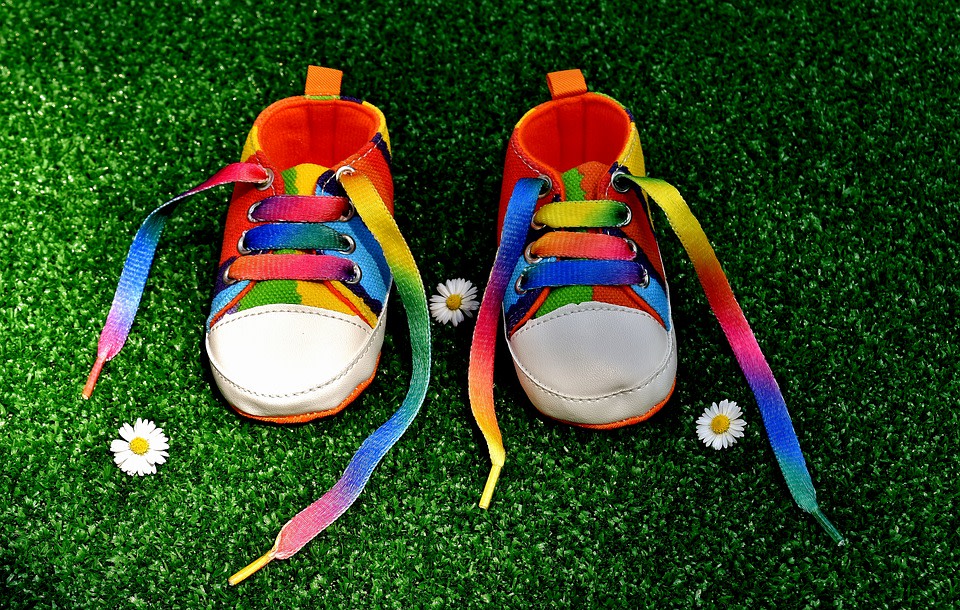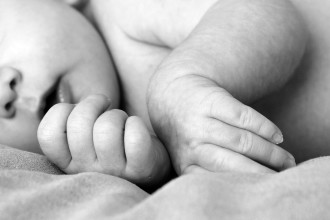Pregnancy and Loss
26 Feb, 2022Pregnancy is celebrated with images of glowing mothers, acknowledgement of the pain of childbirth and months of morning sickness which women speak of fondly in groups after the events, comparing horror stories like war wounds “Oh you had morning sickness for the first two months? Mine lasted right through the second trimester”. Yet we hardly ever hear women discuss these other losses – the pregnancies that didn’t go to term, with premature babies born well before they were ready and worried parents watching through an incubator, or pregnancies that ended long before that, with a miscarriage or still birth, or even babies born with lifelong defects at birth, or autoimmune diseases that threaten their life expectancy. How do we name these losses – a hope for a child that was not born, a hope for child that is healthier that did not eventuate, a grief you feel every time you see someone with a healthy pregnancy when you have lost your baby. I recently listened to a couple of podcasts on ambiguous loss and how it relates to the Pandemic, and it got me thinking about how we talk about pregnancy. We know that 1 in four pregnancies result in a miscarriage – yet we don’t hear about 1 in four pregnancies in our friend and family circles that have resulted in a miscarriage. The awful 12 week rule that has become almost that –a rule – is bandied about like’ oh well maybe you shouldn’t have told people before 12 weeks – cos you know – the 12 week rule’. How is a couple supposed to deal with this huge loss they have experienced alone, when they were not allowed to tell anyone they were even pregnant before 12 weeks?
Ambiguous Loss in Pregnancy
As I said before we know that approximately 1 in four pregnancies result in a miscarriage. But when does this actually occur? After 6/7 weeks the risk of a miscarriage drops to 10% - yet other studies suggest 5%. The famous 12 week rule asserts that it is ‘safe to tell people’ after 12 weeks. Safe for who? Safe for what? Whether or not you tell people you are pregnant, the risk remains the same. Telling other people is hardly a control to prevent a miscarriage.
A baby born without a heartbeat after 24 weeks is referred to as a stillbirth. What is the difference to a parent, if they lose their child at 23 weeks (miscarriage) or 24 weeks (stillbirth)? Who creates these arbitrary rules about what we call it – a loss is still a loss. And sometimes it’s an ambiguous loss. It’s not knowing what your baby would have been like but grieving the person they could have been and the life they would have had. It’s the grief you might feel later if you do get pregnant again and carry a baby to term and the sadness you might feel for their sibling who didn’t make it, and the role they would have played in your family dynamic as an elder sibling to this new child. You might think of them at every Christmas, graduation, family event, what would baby be doing now? What would they think? What would they be doing with their life?
What about the loss you feel for a child who is living but lacks the functionality of most other children? The grief for abilities they could have had may be complicated and result in guilt for the parent. How do you explain the grief of watching one child perform a task with ease and watching the other struggle and feeling saddened that they may never have the life you had hoped for them or the experiences that other children will have.
Ambiguous Loss and the Pandemic
In the podcast On Being, Pauline Boss discusses the concept of ambiguous loss in the episode ‘Navigating Loss without Closure’. She coined the term ambiguous loss to name the reality that every loss does not hold a promise of anything like resolution. In psychology, and in counselling practices, clients are often guided through a linear path of processing grief to then reach ‘closure’. But not every loss has closure. It can therefore be helpful for people to have a name to describe this loss and accept that they may not have a closure point and all these assumptions of how we should be feeling and acting only deepen the stress we are feeling.
Over the course of this pandemic we have all had ambiguous losses – the loss of being able to go out and socialise with friends, the loss of being able to see grandparents and celebrate birthdays, the loss of a career. How do we name these losses and the grief that we experience at not being able to do these things? I have not read Pauline’s book yet “Ambiguous Loss: Learning to Live with Unresolved Grief’ but I have reserved it from the library and look forward to learning more about this and insights from her new book “The Myth of Closure: Ambiguous Loss in a Time of Pandemic and Change”.
Whilst most people could name an ambiguous loss they have felt once they understand the concept, for certain groups, this loss comes more easily to mind – Boss gives examples of families separated due to migration policies, the homesickness that immigrant families experience, disenfranchised groups fighting for their rights to their homeland, couples navigating the process of adoption or giving a child up for adoption, the absence of a parent from your childhood due to divorce, death, abandonment, missing relatives whose death has not been confirmed but yet are missing from your life. She believes that by rethinking and lending language to the nature of loss, we might get closer to understanding it. It’s about helping people be comfortable with no resolution to their loss, unanswered questions. She believes that ambiguous loss is a complicated loss that therefore causes complicated grief, but it is not pathological. It is just a pathological situation.
Today the new research in grief and loss does not recommend a linear approach. While linear approaches are convenient, with a stage 1,2, 3 etc. We know now that human beings are able to live with grief. Living with grief is more oscillations between up and down and those ups and downs get further away over time. We have to make a difference between depression and sadness and so far that hasn’t been made is what Pauline says.
My own ambiguous loss
My partner and I found that we really resonated with the concept of ambiguous loss, in being separated geographically. What started off as a short term long distance relationship, with us thinking we’d meet after 6 months turned into two years. With travel restrictions, health mandates, daily curfews and cancelled flights, I don’t know how we made it through two years but I do know I feel the loss keenly. Even with the light at the end of the tunnel and this pandemic environment being almost phased out, I grieve the loss of the two years we could have had together, the experiences we would have had, the children we could have had by now…My partner and I struggle to name this loss we are experiencing as we navigate the uncertainty of dating long distance in a pandemic, the convoluted mess of immigration systems and visa applications, the generic responses back to follow up emails saying sorry there is a backlog but you’ll just have to wait. How long? We don’t know. We have pages and pages of excel spreadsheets with detailed plans of the trips we want to take, the investments we have made together, the plans of activities to do with our children, hospitals and birth centres ranked by our own personal riteria of where we’d want to have them and the lifestyle we are hoping to achieve. And we grieve the loss of the time we could have had to do all these things whilst we are stuck in this state of limbo – no man’s land – just waiting waiting – for some government official in an office to process our application. I experience sadness and grief when my well-meaning relatives joke, “Oh you both must be experts at planning by now” – yes we are but we’d rather have executed those plans and done the things we wanted not just be stuck in one place planning. It isn’t funny and it’s not a joke, it’s a loss I deeply feel. When people so close to us can make light of a loss that I feel so intensely, it is clear to me that even if I tried to explain it – my loss would not be viewed as a legitimate loss and we are completely alone in feeling and dealing with this loss.
But there is also another loss. The loss of the children we would have had – that perhaps is more relatable to people who have gone through the pain of infertility, miscarriage and other pregnancy losses. It is however, still one that I feel disenfranchised about and till now have not discussed with anyone except my partner. How do you explain to someone that you grieve the loss of the time you could have been trying to conceive a child that may not even have been conceived – or the loss of your fertility that occurred over two years of waiting for this pandemic to end – the health of your eggs that has deteriorated from two years of waiting? How do you explain to someone that you grieve the loss of the opportunity to try to conceive a child, when there is no guarantee you would even have gotten pregnant? These are losses that are hard to name, hard to really put a finger on, losses that I know I feel, but I can’t explain to the average person because they probably don’t think it’s a legitimate loss. It ends up making me feel disenfranchised. My partner and I talk about our children every day. We have named them and they are real to us and we wonder about what they will be like. When he sees children snowboarding on the slopes he sends me photos and says I can’t wait for this to be us – do you think they’ll like the snow? When I make pizza at home I imagine three scruffy faces perched at the kitchen counter with us, making their own mini pizzas for dinner and deciding what toppings they want. Will they be like me and like pineapple on their pizza or be like my partner and detest it?
Our children are so real to us and at the same time, we are keenly aware they are not. This loss we feel at not having them in our lives, not having the opportunity to try for them, gnaws at my happiness on a daily basis. It is visceral, it is invisible, it is ambiguous.
Check out the podcast here:
https://onbeing.org/programs/pauline-boss-navigating-loss-without-closure/
Get The Best Of Sleepy Roo Delivered To Your Inbox
Subscribe to my newsletter and get the latest info on baby sleep! You can unsubscribe at any time.



